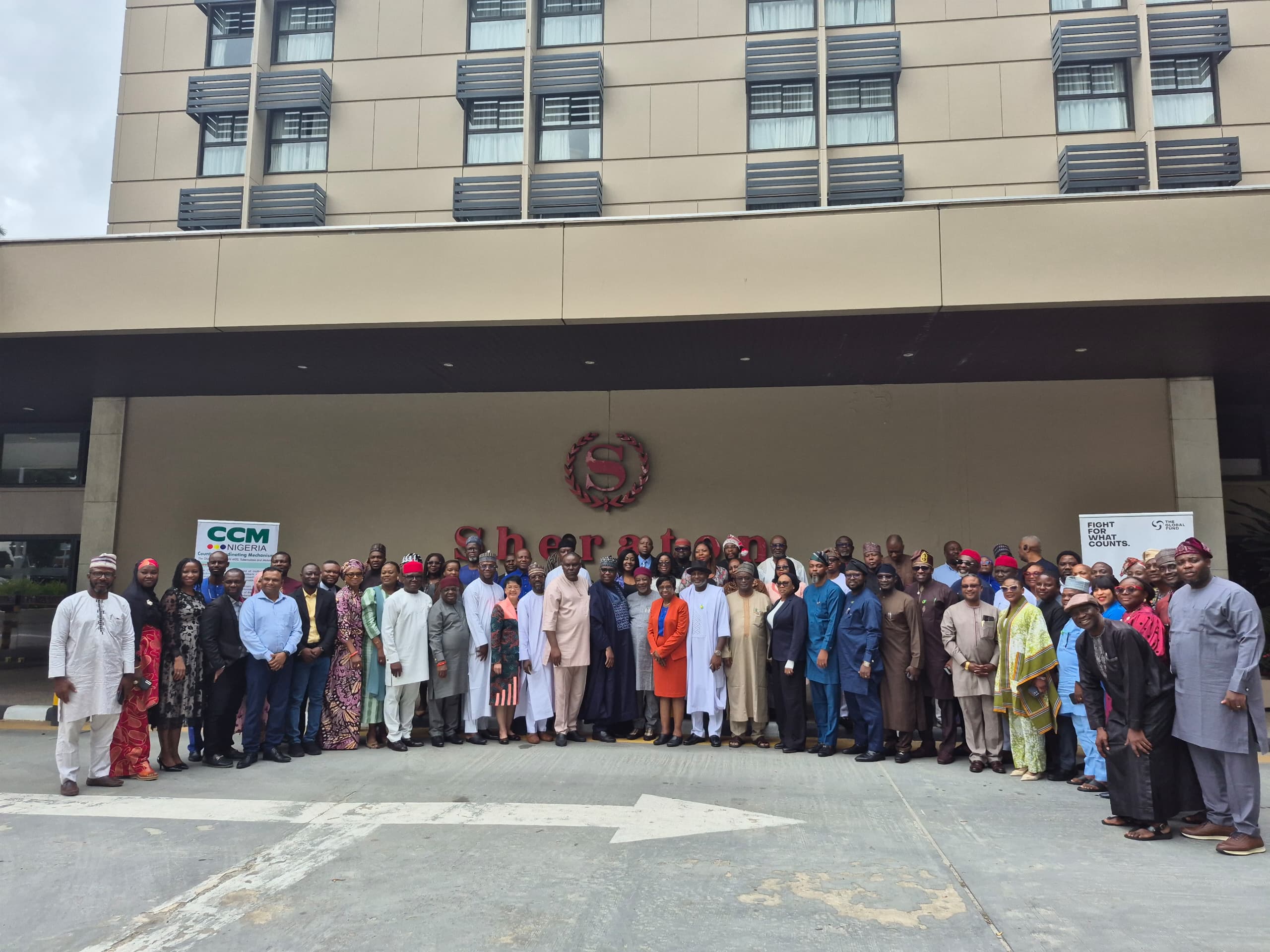By Appolonia Adeyemi Ayobamiji Komolafe
Chairman of the House Committee on HIV/AIDS, Tuberculosis, Leprosy and Malaria Control, Amobi Godwin Ogah, has called for greater transparency and local ownership of Global Fund health resources, insisting that Nigeria must move beyond opaque donor fund management and weak domestic commitment to public health.
Ogah made this demand at the three-day Annual Retreat of the Global Fund Country Coordinating Mechanism (CCM), which also featured the inauguration of newly reconstituted CCM members.
The event held from July 1–3 at Sheraton Hotel, Ikeja, Lagos, brought together lawmakers, development partners, programme implementers, civil society groups, and the media.
The lawmaker emphasized the need for full legislative oversight of how Global Fund resources—running into billions of naira—are allocated and used in the fight against HIV/AIDS, tuberculosis, and malaria (ATM).
“Many Nigerians view their operations as that of a secret coven,” Ogah said. “It is in the interest of CCM Nigeria to open up their processes to the parliament.”
He decried past attempts to track the utilization of Global Fund resources, alleging that some recipient organizations had no verifiable addresses and deliberately blocked scrutiny. He demanded parliamentary representation on the CCM Nigeria board to bridge the communication gap with the executive and ensure continuous collaboration.
Ogah also lamented Nigeria’s heavy reliance on foreign donors, citing a recent 11 per cent cut in Global Fund allocation—from $970 million to $860 million—and the suspension of U.S. health aid to Africa as urgent wake-up calls. While commending the Federal Government’s commitment of $200 million to fill part of the funding gap, he stressed it was not nearly sufficient.
“Before now, we were like lone voices in the wilderness calling for increased domestic investment in health. Now the tide is changing. We must take full ownership of our health system,” Ogah declared.
He praised collaboration with tuberculosis stakeholders, noting that over 400,000 Nigerians have been placed on TB treatment in 2024 alone. However, he warned that malaria has reached epidemic proportions.
“Despite a motion we moved to investigate fake anti-malaria drugs, key stakeholders refused to cooperate,” he said, calling for free malaria treatment in all primary healthcare centers and stricter regulation against counterfeit medicines.
The lawmaker also cited positive legislative strides in the TB sector, including the Nigeria TB Parliamentary Caucus, the 2025 Anti-TB Discrimination Bill (which has passed first reading), and collaboration with the Stop TB Partnership Nigeria and the First Lady, Senator Oluremi Tinubu.
Representing the Minister of Health and Social Welfare, Prof. Muhammad Ali Pate, First Vice-Chair of the Global Fund CCM, Ayo Ipinmoye, acknowledged the legitimacy of the National Assembly’s concerns.
“We are going to strengthen our accountability processes. The National Assembly needs to know what is being done,” he affirmed.
Ipinmoye emphasized that the Sector-Wide Approach (SWAp), introduced by the Health Ministry, is designed to harmonize funding streams, optimize resources, and prepare Nigeria for a future with less reliance on donors.
“Global Fund is just a top-up. The government must take the lead,” he said, urging federal, state, and local governments to prioritize healthcare spending.
Executive Secretary of CCM Nigeria, Ibrahim Tajudeen, also addressed the chronic underfunding of Nigeria’s health sector. He lamented that Nigeria has failed to meet the 15% budgetary commitment to health as outlined in the Abuja Declaration of 2001, with allocations hovering around 4.5%.
“Since 2002, Nigeria has received $4.8 billion from the Global Fund. But the real work of health financing must now be taken up by Nigerians—our lawmakers, taxpayers, and institutions,” Tajudeen stated.
He also stressed the need for parliamentary oversight not just on programmes receiving donor funds, but also on the federal government’s budget releases to the Ministry of Health. He said delayed disbursements undermine programme implementation and that CCM itself is underfunded despite being critical to grant governance.
“The legislature must ensure timely release of funds and support CCM to carry out its oversight duties. We can’t build a health-secure Nigeria on donor money alone,” he noted.
As the retreat concluded, the message resonated clearly: Nigeria must take full ownership of its public health challenges. Legislators are ready to step up, but insist on transparency, accountability, and access to data and decision-making mechanisms.
Ogah’s closing words captured the spirit of renewed purpose:
“In my place, we say ‘Osita Di Nma’—from today, it will be well. For Nigeria’s health sector, the time for hope and action is now.”
